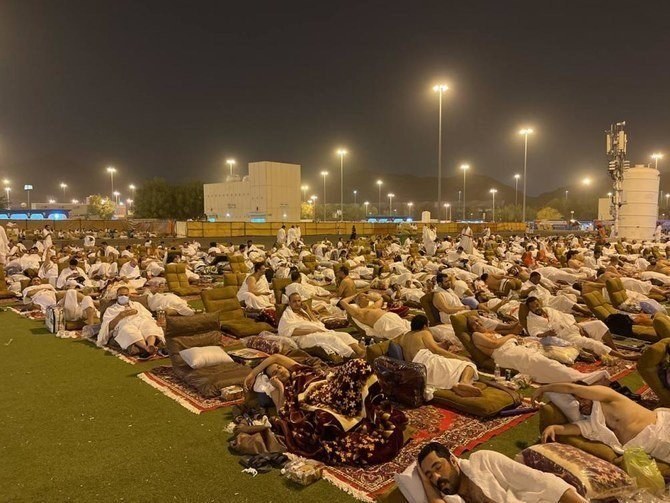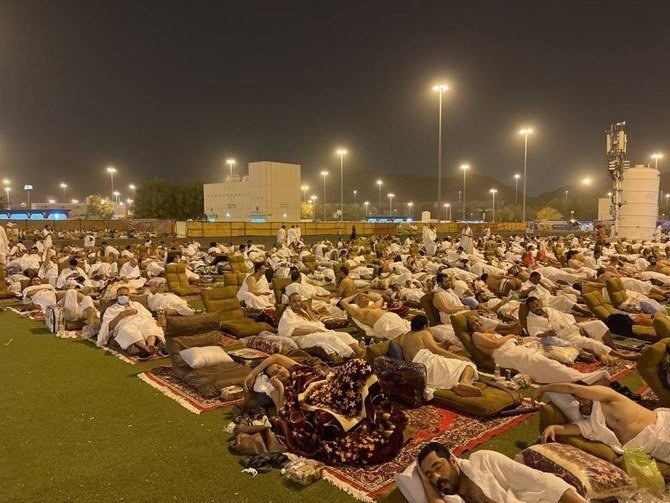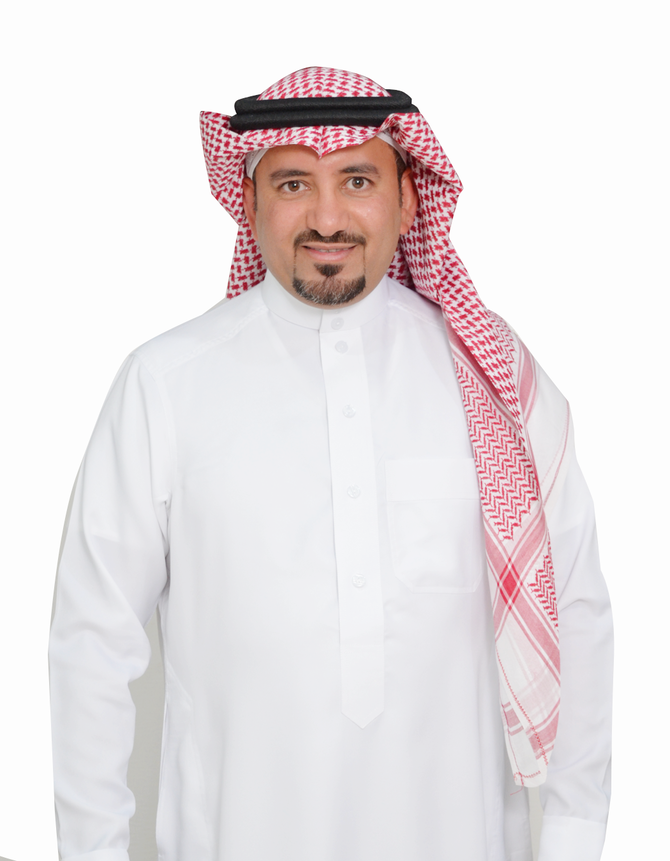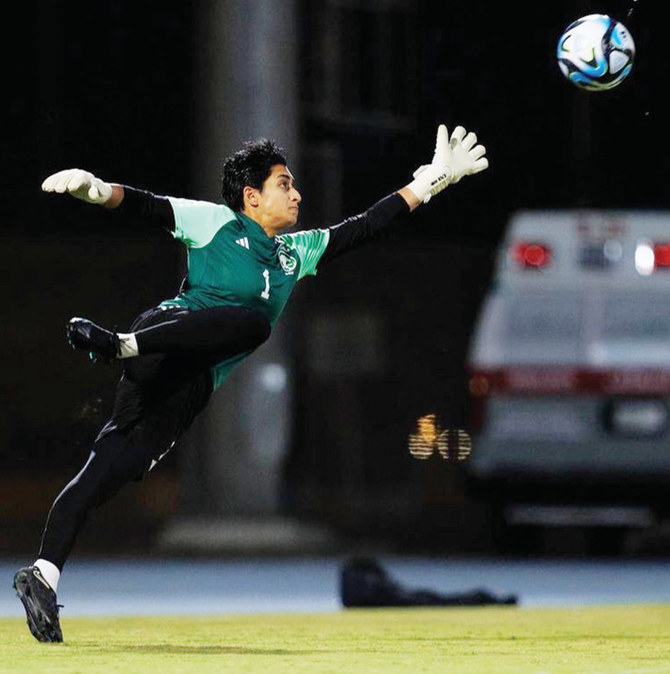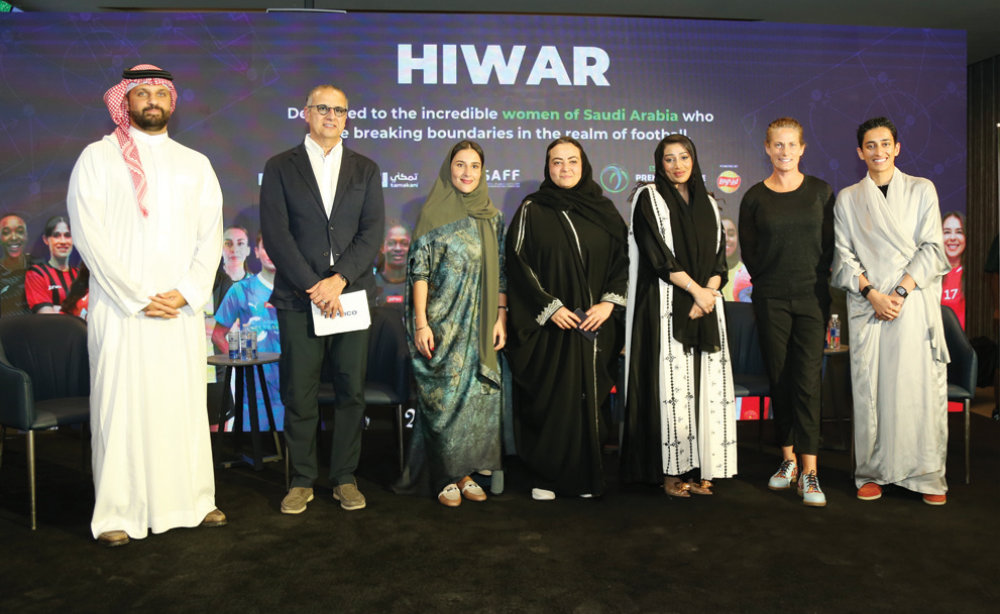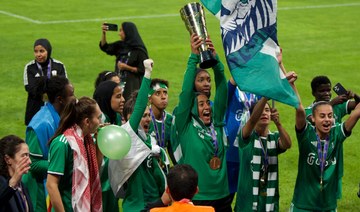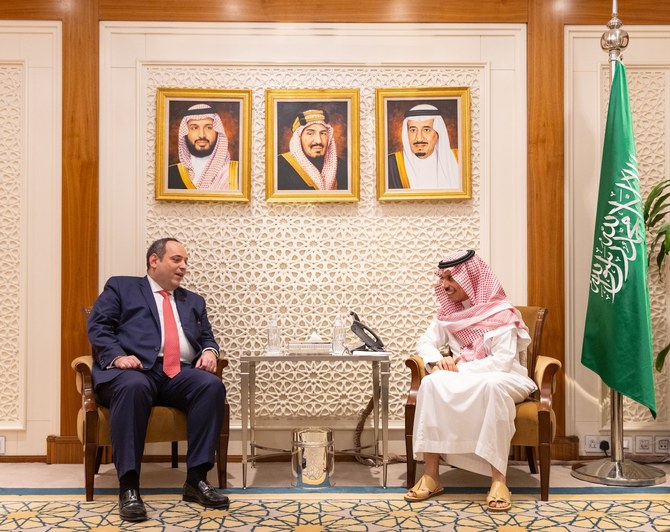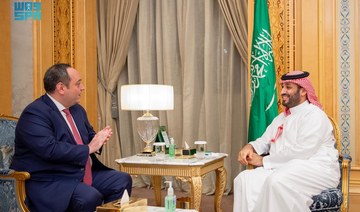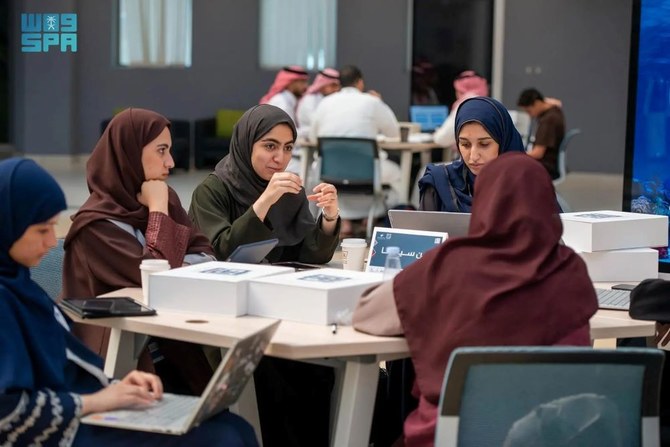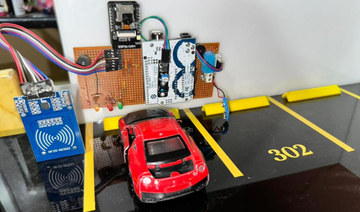MUZDALIFAH: After spending around 12 hours on the plains of Arafat on Monday for the most important part of Hajj, 60,000 people went to Muzdalifah in preparation for the final stages of this year’s pilgrimage.
Minutes after sunset on the ninth day of Dhul Hijjah, the pilgrims began moving to the open but rocky plains of Muzdalifah, where they pray Maghrib and Isha.
The caravan of buses, each carrying 20 pilgrims, arrived in Muzdalifah. On each bus there is a guide whose task it is to help pilgrims with all information they need and ensure they are socially distanced.
The buses were accompanied by security patrols, and there was a time interval between buses for a smooth traffic flow.
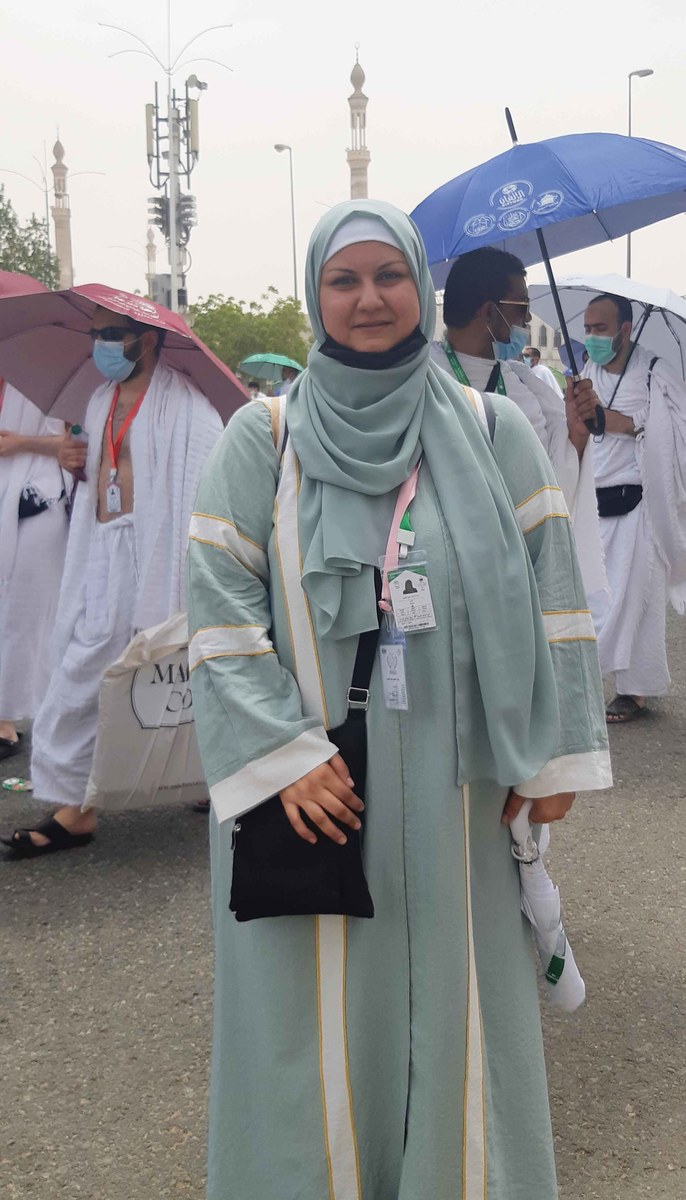
Rasha Musbah, an Egyptian driving trainer at Princess Nourah bint Abdulrahman University in Riyadh said that was lucky to join this year’s Hajj. (AN photo)
In Muzdalifah, the pilgrims collect pebbles for the stoning of the devil ritual at the Jamarat area in Mina. The first day in Mina, the 10th of Dhul Hijjah, marks the first day of Eid Al-Adha.
Saudi Health Minister Dr. Tawfiq Al-Rabiah told Al-Ekhbariya TV channel that no coronavirus cases had been detected among the pilgrims during this Hajj.
“There were some minor cases of tiredness due to the physical exertion, but the pilgrims with such simple cases left hospitals shortly after they received the necessary treatment,” he said.
Dr. Abdul-Fattah Mashat, deputy minister of Hajj and Umrah, said that all pilgrims were transported from Mina to Arafat in three hours. More than 1,700 buses brought the pilgrims from Arafat to Muzdalifah, he added.
“Immediately after sundown, the pilgrims started to board the buses that were made ready some three hours earlier.”
The pilgrims move from Muzdalifah back to Mina, starting from midnight on Monday.
“These buses will take them to their camps in Mina, from where they can move to the Jamarat area. There, they will use three floors of the Jamarat construction to do the stoning. We have divided the pilgrims into color-coded groups. Each group will throw (stones at) the pillar from a predefined floor and from a particular place to avoid accumulation of pilgrims.”
Mashat praised the pilgrims for sticking to the regulations and following instructions on mask wearing and social distancing.
Sheikh Bandar Baleela, imam of the midday prayers at Namirah Mosque, focused his Arafah sermon on urging Muslims to do good to all creatures, including animals and inanimate objects.
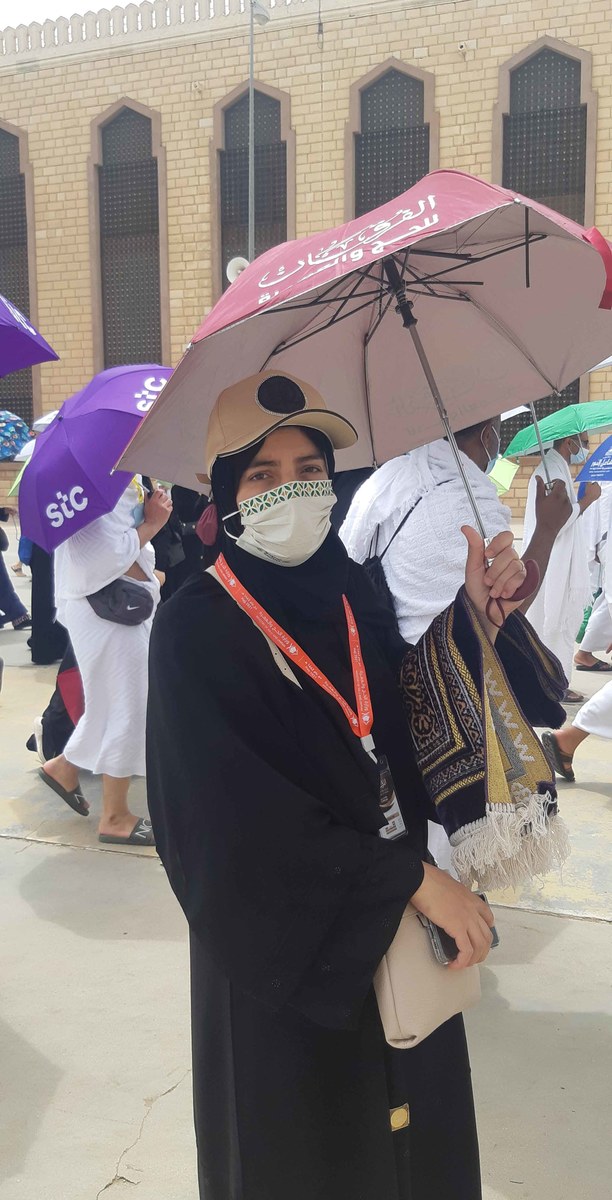
Dr. Nahla Mohammed Abdullah, an Egyptian anesthetist and intensive care physician at King Abdul Aziz Specialist hospital in Taif. (AN photo)
Baleela added that King Salman and Crown Prince Mohammed bin Salman were keen to make this Hajj season secure and safe.
Shahid Nazir Gill, a Canadian pilgrim living and working in Yanbu, said the hospitality and support on offer was remarkable.
“I would like to express my gratitude to the Saudi government for everything they have done for us. Their efforts, especially during the pandemic, are highly appreciated,” Gill told Arab News.
Rasha Musbah, an Egyptian driving instructor at Princess Nourah bin Abdulrahman University in Riyadh, said she was lucky to join this year’s Hajj.
“The services are amazing,” she told Arab News. “Organization, hygiene and all other services are at high levels. All the people here are helpful, beginning from the security men to cleaning workers.”
She added that pilgrims were abiding by the health measures and expressed hope that the pandemic would soon end.
But there were also mixed feelings about this year’s Hajj.
“When my husband and I first registered, we were not among the first approved group,” Dr. Nahla Mohammed Abdullah, an Egyptian anesthetist and intensive care physician at King Abdul Aziz Specialist hospital in Taif, told Arab News. “We were sad to know that.”
While she received a message two days later confirming that her Hajj request was approved, her husband’s request was unfortunately rejected.


